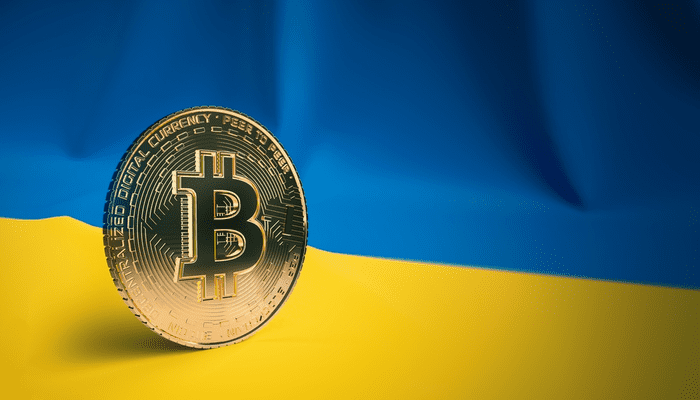The war in Ukraine has sparked a lot of discussion about the crypto industry. On the one hand, it would enable Russia to get out of Western sanctions and, on the other hand, be bitcoin (BTC) donations are used to achieve humanitarian aid for Ukrainian residents. According to Coinshares, the war has made one thing crystal clear: Bitcoin does have intrinsic value.
Bitcoin and Stocks
Lately, the correlation between stocks, especially tech stocks, and bitcoin has been huge. For that reason, the largest cryptocurrency is often in the risk-on category placed by investors. According to Coinshares however, this is the wrong approach. Bitcoin is not at all comparable to tech stocks. Tech companies offer certain goods and services while bitcoin offers an alternative to the existing monetary system. Those are inherently two completely different things.
This was confirmed once after the Russian invasion of Ukraine. Bitcoin is limitless and it does not discriminate. Anyone in the world can use the Bitcoin network. Whether they live in the Netherlands, Ukraine or Russia. Basically, the network is completely independent of any interference from governments.
“The protocol is non-discriminatory, so anyone with access to the internet can set up a wallet equivalent to an international bank account, free from any regulation and human/political influence.”
The value of bitcoin
Especially when the traditional financial system comes under pressure, for example through a war and subsequent sanctions, the real value of the Bitcoin network emerges. For that reason, many residents of both Ukraine and Russia are currently embracing bitcoin as a means of payment.
According to Coinshares, bitcoin transactions have skyrocketed in both countries in the past two weeks. The traditional financial sector is failing people and the Bitcoin network is ideally suited to fill this gap.
“While Bitcoin’s identity remains volatile, as it matures we will likely see one of its original core concepts, a stateless asset free of human error and politics, continue to gain ground against its identity as a high-risk asset. This has been aptly demonstrated by recent geopolitical events.”
–


